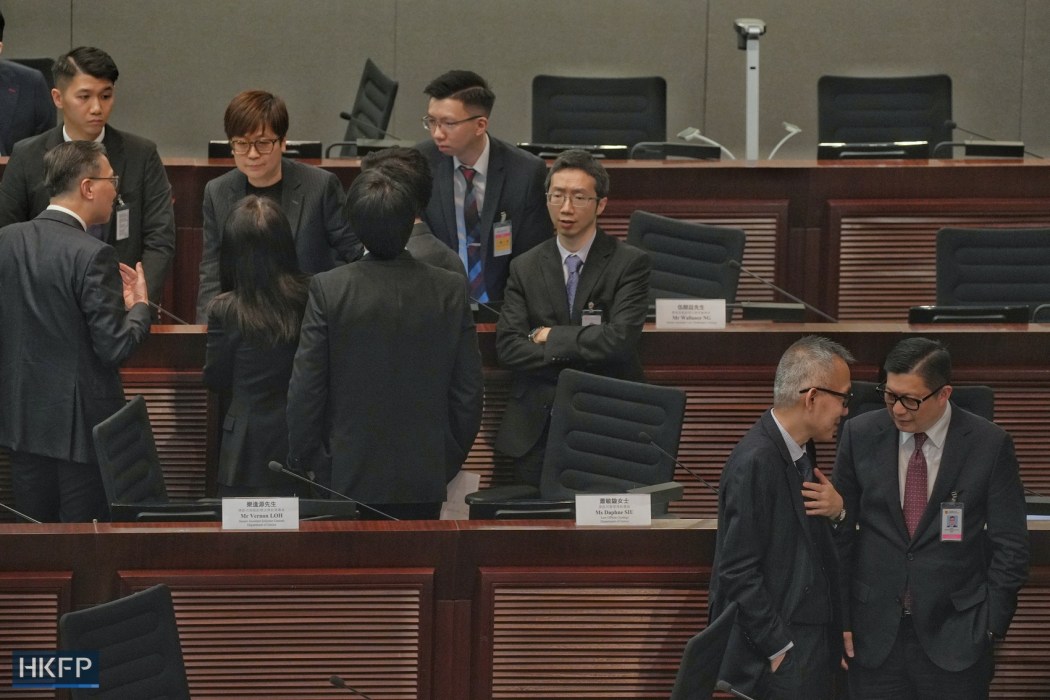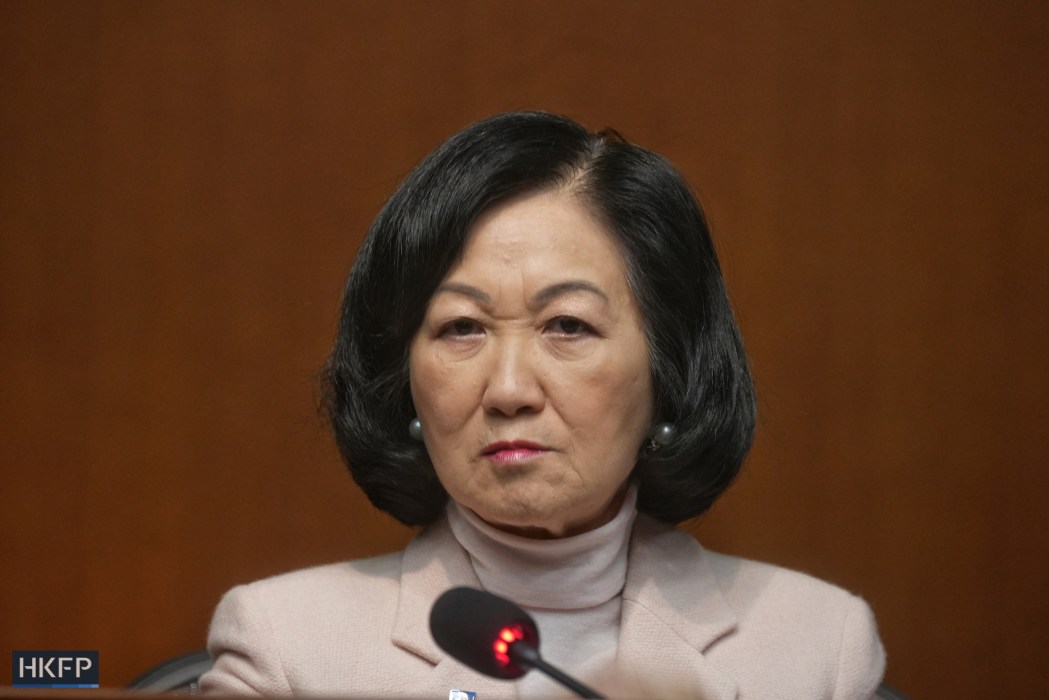Cooperating with foreign groups is a “neutral” act and it will not violate Hong Kong’s proposed domestic security law unless it is done via “improper means” and causes an “interference effect,” security chief Chris Tang has said.
The remarks came on Sunday, when lawmakers asked questions concerning the proposed new “external interference” offence during a fast-tracked discussion in the Legislative Council (LegCo) about the Safeguarding National Security Bill.

The draft bill defines external interference as someone who “collaborates with an external force to do an act” with “intent to bring about an interference effect,” and uses “improper means when doing the act.”
Pro-establishment lawmaker and convenor of the Executive Council Regina Ip said on Sunday in the LegCo that many former foreign officials served in think tanks and academic institutions to influence the policies of other countries. Ip asked if cooperating with those groups would be considered external interference.

In response, Tang said that while such cooperation might constitute “collaborating with external forces,” it will not violate the law if “improper means” were not employed and it did not cause “an interference effect.”
Ip replied that defining working with foreign groups as “collaborating with external forces” sounded very “negative.” Tang said: “It’s neutral. Cooperating with others is a neutral act. Cooperation is neutral.”

Jeffery Lam, a pro-establishment lawmaker and a member of the Business and Professionals Alliance for Hong Kong, said on Sunday in the LegCo that commerce chambers and enterprises often worked with foreign institutions, drawing on their experiences to lobby the city’s government.
Lam asked whether provisions specifying that certain conduct would not be considered unlawful could be introduced to the bill.
In response, Tang again said that local companies cooperating with foreign groups may be considered as “collaborating with external forces,” but would not violate the law unless they did so using “improper means” and it caused “an interference effect.”
According to the draft bill, interfering in the policy formulation of Beijing or Hong Kong authorities, interfering with the functionality of LegCo or the courts, interfering in any elections, and prejudicing the relationship between China and foreign countries, and between the central authorities and Hong Kong would be considered as “bringing about an interference effect.”
74 minutes per section
Over the weekend, the Bills Committee on Safeguarding National Security Bill convened extra meetings totalling 16 hours to examine the draft bill of Article 23, a 200-page document.
Including Friday, the committee hosted almost 20 hours of meetings to examine 73 articles under 11 sections, representing around 70 per cent of all articles.
Ming Pao reported that each section was examined for approximately 74 minutes.
The committee is holding meetings on Monday and will also meet on Tuesday.
Support HKFP | Policies & Ethics | Error/typo? | Contact Us | Newsletter | Transparency & Annual Report | Apps
Help safeguard press freedom & keep HKFP free for all readers by supporting our team























